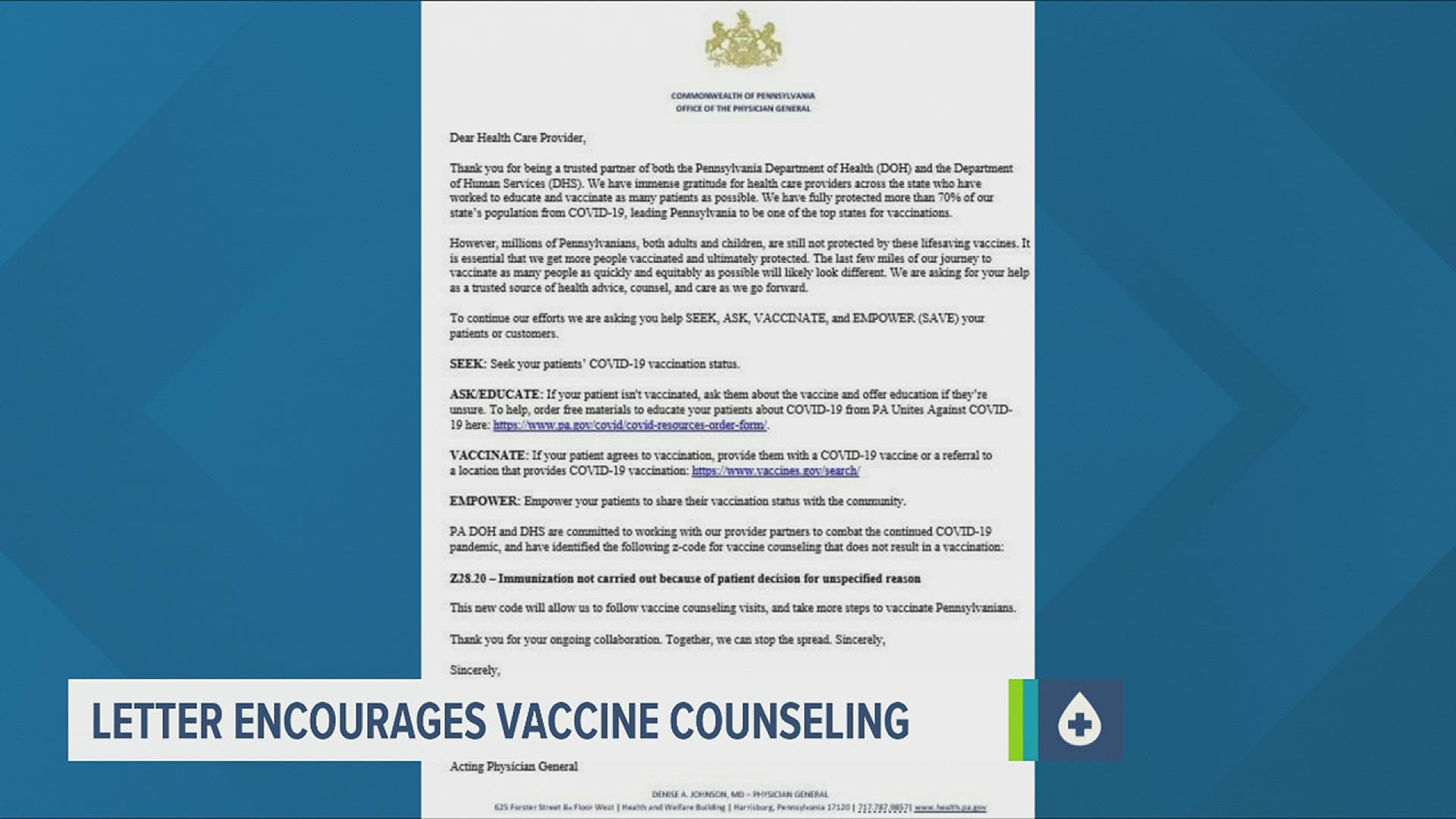HARRISBURG, Pa. — In a push to get more people vaccinated, Pennsylvania’s Acting Physician General is sending a letter to health care providers across the Commonwealth. However, the letter is raising some privacy concerns.
It identifies a z-code that doctors can use to indicate vaccine counseling occurred, despite a patient choosing not to get inoculated. The code in question is: Z28.20—Immunization not carried out because of patient decision for unspecified reason.
The letter reads, “PA DOH and DHS are committed to working with our provider partners to combat the continued COVID-19 pandemic. This new code will allow us to follow vaccine counseling visits, and take more steps to vaccinated Pennsylvanians.”
FOX43 received concerns about whether this means patient information is being given to third parties without their consent. We asked the Department of Health (DOH) about these vaccine counseling visits and whether they would be following up with patients. We’re told that neither DOH nor the Department of Human Services (DHS) will reach out to patients or are receiving medical information about patients.
“There is no HIPAA concern because no medical information is being shared outside of the typical existing patient, doctor and insurer circle,” said Barry Ciccocioppo, Communications Director for the Department of Health.
The code is similar to those used by health care providers to inform insurance companies about patient services for the purposes of determining insurance coverage. This is a code that can be added to a visit when a provider submits their normal billing information, which signifies that vaccine counseling occurred during the visit.
Providers may talk to patients about the possible side effects and benefits of getting vaccinated to ensure they have the most accurate information available when deciding whether or not to get vaccinated
Managed Care Organizations (MCO) may, at their discretion, use this information to compensate providers for the extra time spent with patients to counsel them regarding COVID-19 vaccination status as an added incentive for providing education about the vaccines.



